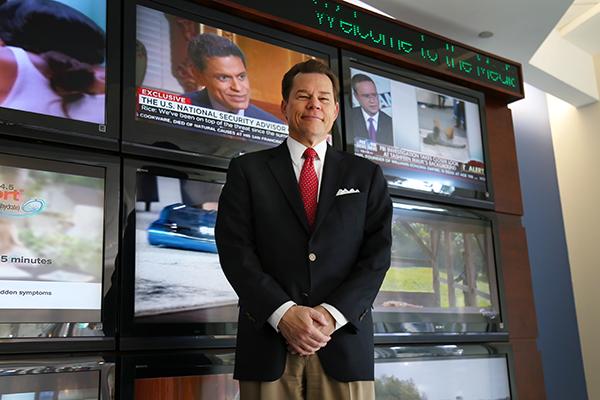Updated: Dec. 7 2015 at 3:47 p.m.
The Graduate School of Political Management has shifted its focus in the school’s development from domestic to international politics.
About four years into the school’s strategic plan, Mark Kennedy, the director of GSPM, said he chose to prioritize some goals over others to give graduate students the right skills for modern campaign and advocacy efforts. Faculty members said globalization has been a larger focus under Kennedy’s leadership and more programming has worked to integrate globalization into other areas.
Since GSPM’s five-year strategic plan was penned in 2012, the school has spent its money and efforts on expanding international curricula and opportunities for students to study politics abroad. Kennedy said the curriculum revamps and exposing students to other parts of the world have been prioritized over other goals laid out in the plan.
“As we moved forward with implementing the strategic plan, we prioritized adding a refresh of the political management curriculum that, among other enhancements, has included the addition of five additional digital politics courses,” Kennedy said in an email.
Postponed goals include starting state partnership programs and creating joint degrees with the law and business schools.
Officials had initially hoped to start programs on state politics in four states by 2017, but that had been put on the back burner as globalization has been prioritized. Kennedy said he hopes state capital programs can be begin to be rolled out in 2017.
That international focus falls in line with GW’s overall commitment to globalization, and Kennedy said he made the shift because students can engage in “political and societal forces in different countries.” The school has been known for success in training students on domestic politics.
The global advocacy program, which began last fall, was implemented through one of the strategic plan’s goals to launch an international advocacy program by 2015.
The plan also called for adding at least three new full-time faculty position and transforming some part-time faculty positions into full-time. Kennedy declined to comment on how many faculty have been hired since 2012.
“We have welcomed new full-time faculty as well as undertaken a constant look at our adjunct faculty to ensure that our students are learning from the best political, communications and advocacy professionals that the Washington, D.C. area has to offer,” Kennedy said.
One of the faculty members brought on was David Rehr, who leads the global advocacy program. He said developing the globalized advocacy program was an important place to channel GSPM’s focus, because the school had already seen success in training students on domestic politics.
“The reason why we went forward with advocacy is that GSPM, for 25 years, has been great in domestic campaigns mostly with corporations and nonprofits. We thought using those pillars as the basis and creating this new curriculum would build on the curriculum,” Rehr said.
Rehr said an essential part of the internationally focused education has been global perspective residency programs, which allow students enrolled in GSPM to go on residencies that last either one or two weeks. The program has been offered in cities like Brussels, London, Istanbul and Hong Kong.
Next semester Kennedy will lead students on the program’s first trip to South Africa, where they will get what Rehr called the “behind the curtain look at the Wizard of Oz,” seeing how top political NGOs, corporate, business and media leaders understand how to advocate in that country.
“Our grad students tend to be more nationalist, but there’s more of a movement for nonprofits and NGOs to improve the quality of life for people who are less fortunate. I think this program, given the places that the residencies exist, is all building on this idea of being able to impact the world in a positive way,” Rehr said.
Katherine Wynne, a presidential administrative fellow who is receiving a master’s degree in political management in the global advocacy program, said she became interested in the program after interning at a lobbying firm while she was an undergraduate student in the Elliott School of International Affairs.
“I wanted to somehow fuse my passion for creating positive, large-scale change with my interest in lobbying, but do so in such a way that continued to develop my global awareness,” Wynne said.
She said she hopes more Elliott School students and graduates from other international affairs schools seek out GSPM because of its increased global focus.
“People who are interested in honing their professional advocacy skills, no matter where in the world they are from, can capitalize on the decades of real-world experience GSPM professors provide,” Wynne said.
This post was updated to reflect the following correction:
The Hatchet incorrectly reported that the global perspective residency programs are month-long residencies. They are two weeks long. We regret this error.







